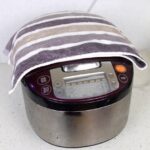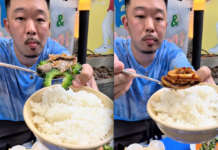Nutritionally, eggs are a powerhouse, which is why they are a perfect fit for any meal, be it breakfast, lunch, or dinner.
Usually, aside from frying and grilling, boiled eggs are considered a national dish. It may seem easy to boil an egg, but achieving the perfect boil is an art not everyone can master. Overcooking an egg is enough to produce toxins that are harmful to your health.
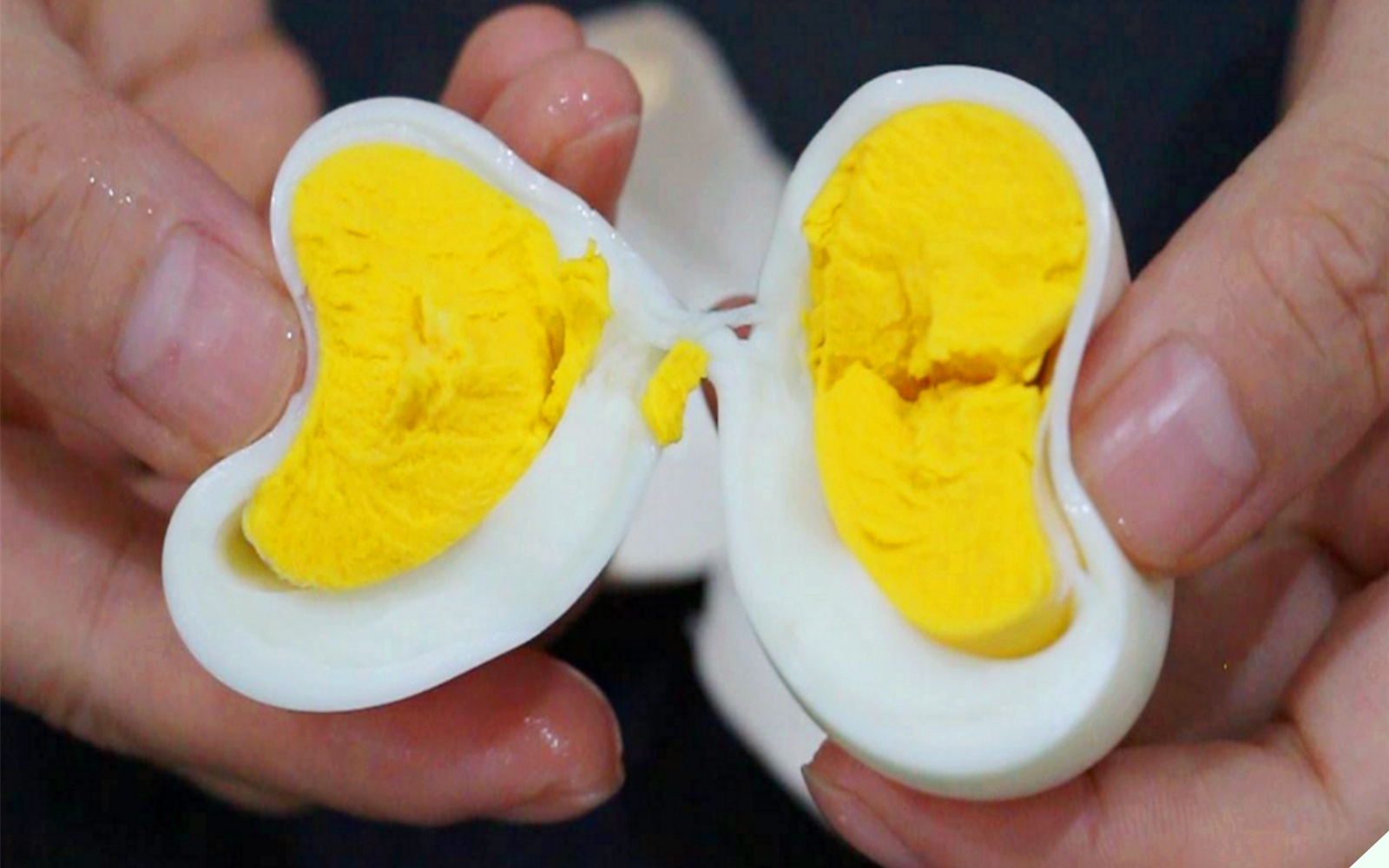
Why You Shouldn’t Over-Boil an Egg
When you over-boil an egg, its white releases a toxic gas called hydrogen sulfide. As the egg overcooks, the outer shell creates pressure, forcing this gas towards the yolk.
At this point, the iron in the yolk reacts with the hydrogen sulfide, forming iron sulfide. This is why overcooked eggs often have a greenish ring around the yolk. The longer the egg is boiled, the thicker this ring becomes.
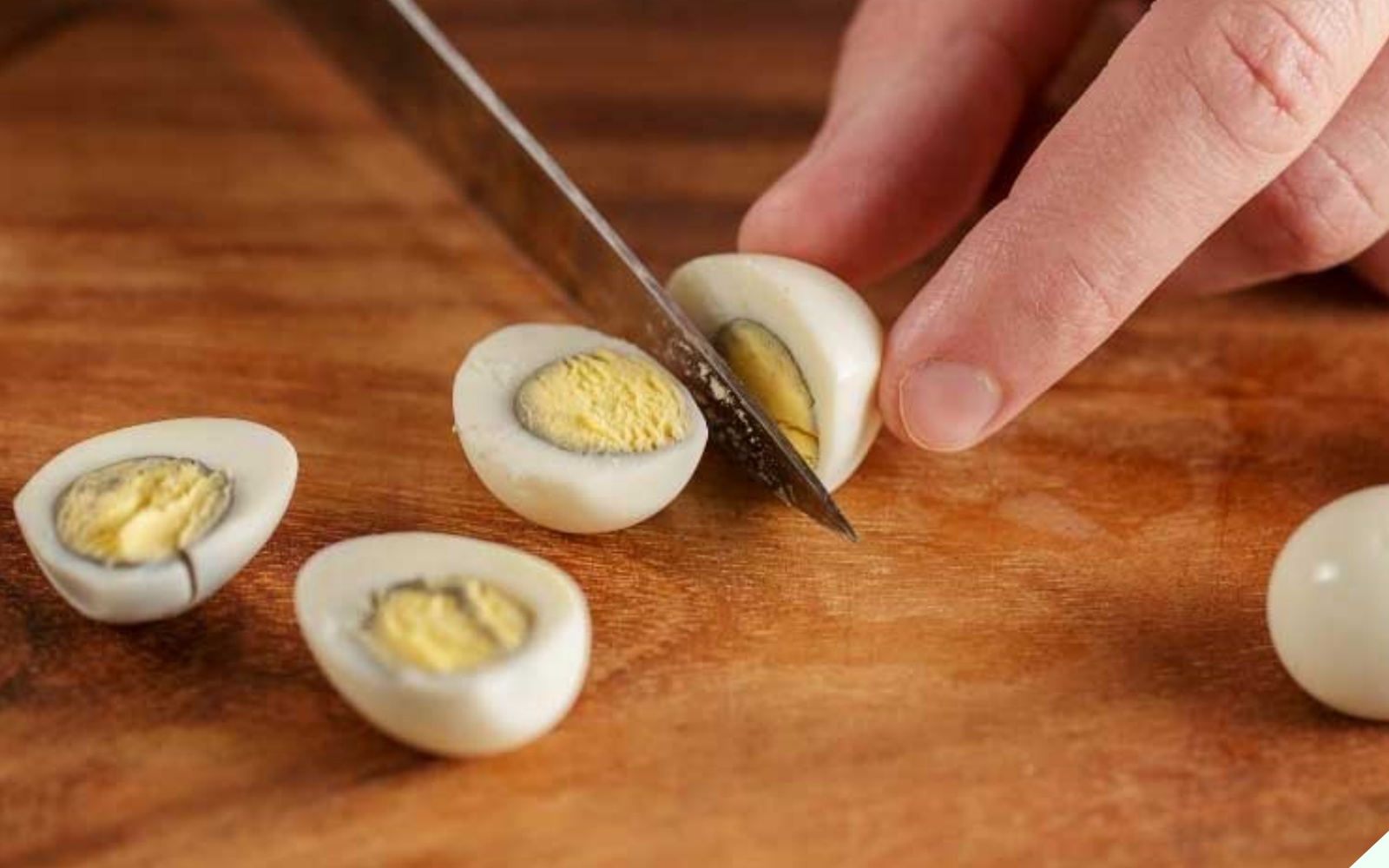
Although there haven’t been any tragic hospitalizations due to overcooked eggs, it’s still best to avoid them for your health’s sake.
To prevent overcooking, chefs recommend plunging the eggs into a bowl of cold water immediately after boiling to quicken the cooling process.
How to Tell If an Egg Is Overcooked
You can identify an overcooked boiled egg through these two characteristics:
Smell
Overcooked eggs emit a distinctive foul odor. This smell is from the hydrogen sulfide gas.
Color
When you cut into the egg, you’ll notice a color change around the yolk. Typically, overcooked eggs have a thick greenish rim around the outside of the yolk.
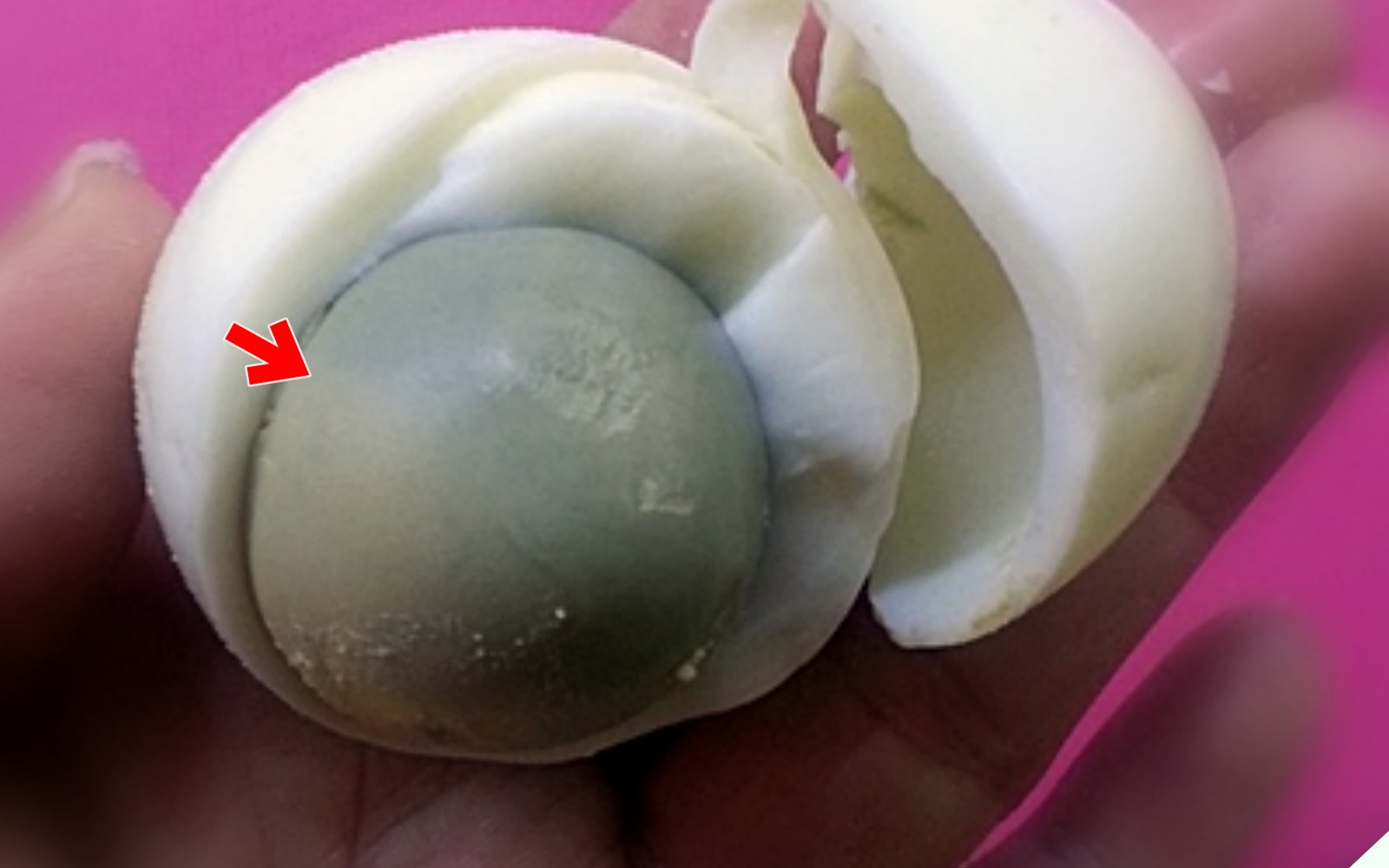
Additionally, the yolk loses its yellow hue, turning grayish on the outside and pale yellow-greenish on the inside.
How Long to Boil an Egg?
The boiling time depends on your preference for yolk consistency. For a runny yolk, boil for about 8 minutes. If you prefer a fully cooked but slightly soft yolk, boil for 10 minutes. And for a completely hard-boiled egg, boil for 12 minutes.
Step 1:
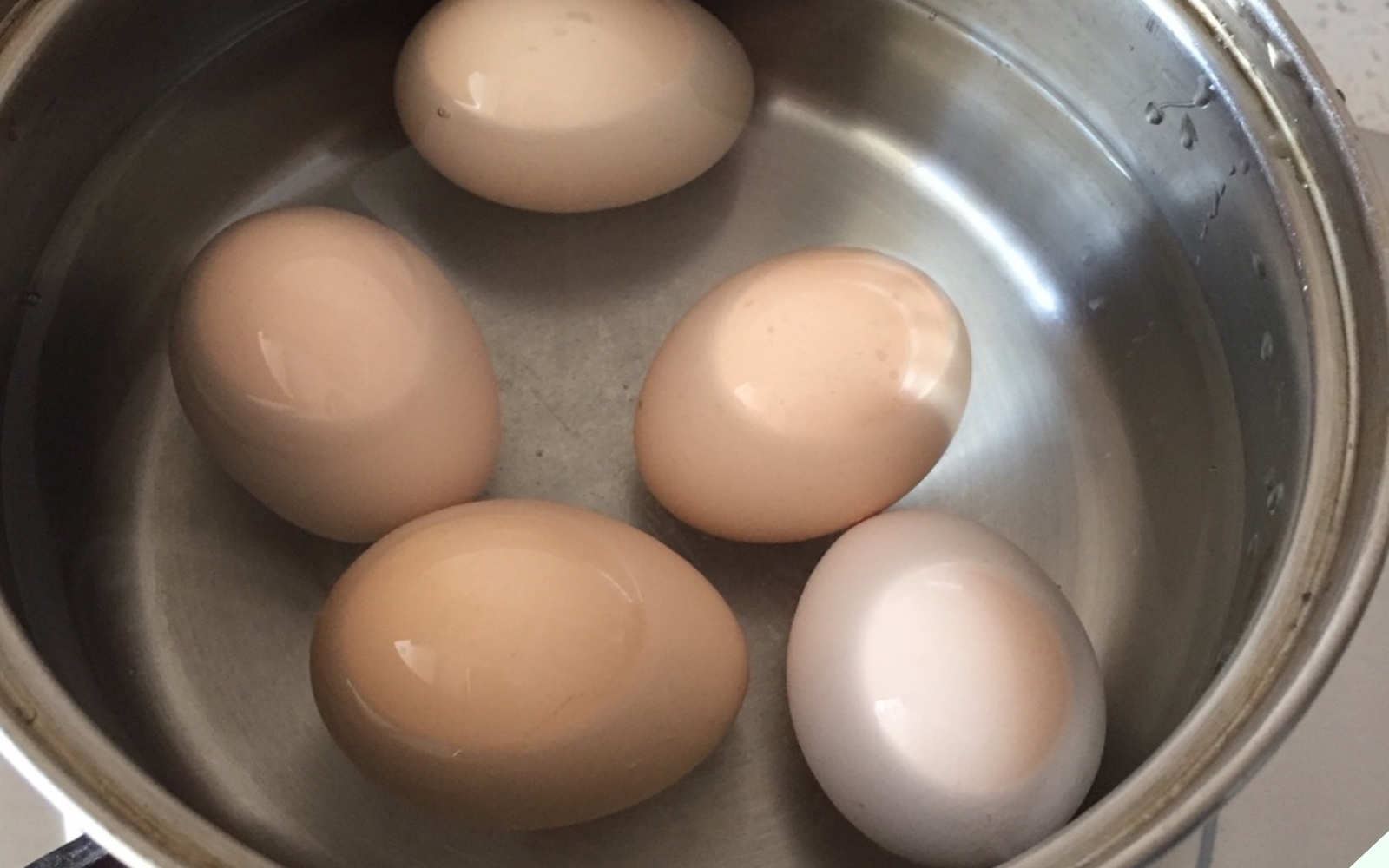
– Wash the eggs and place them in a pot. Add cold water, ensuring it covers the eggs.
Step 2:
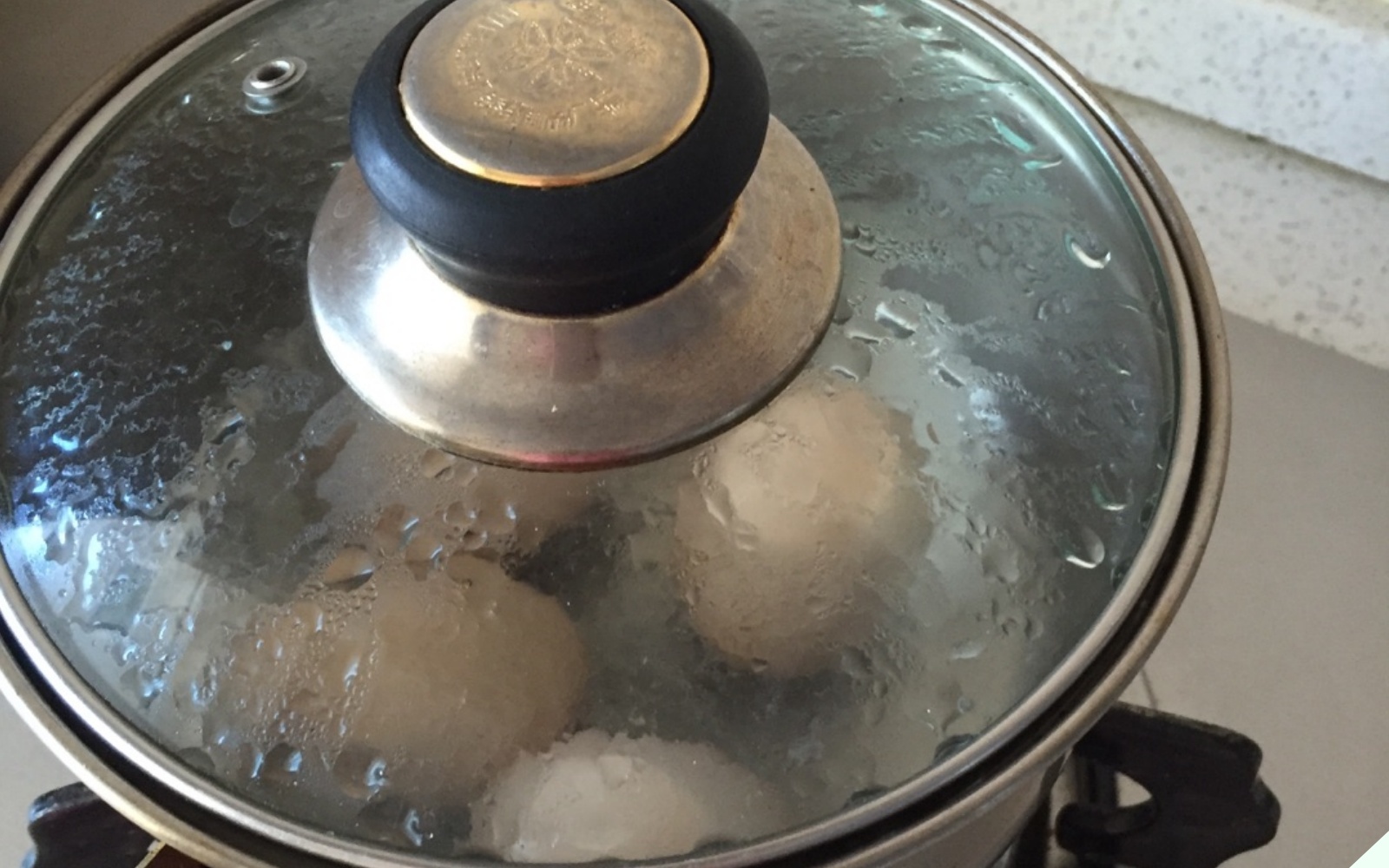
– Turn the heat to high and bring the pot to a boil for about 3 minutes, then reduce the heat.
– Continue boiling for 10 minutes, then turn off the heat.
Step 3:
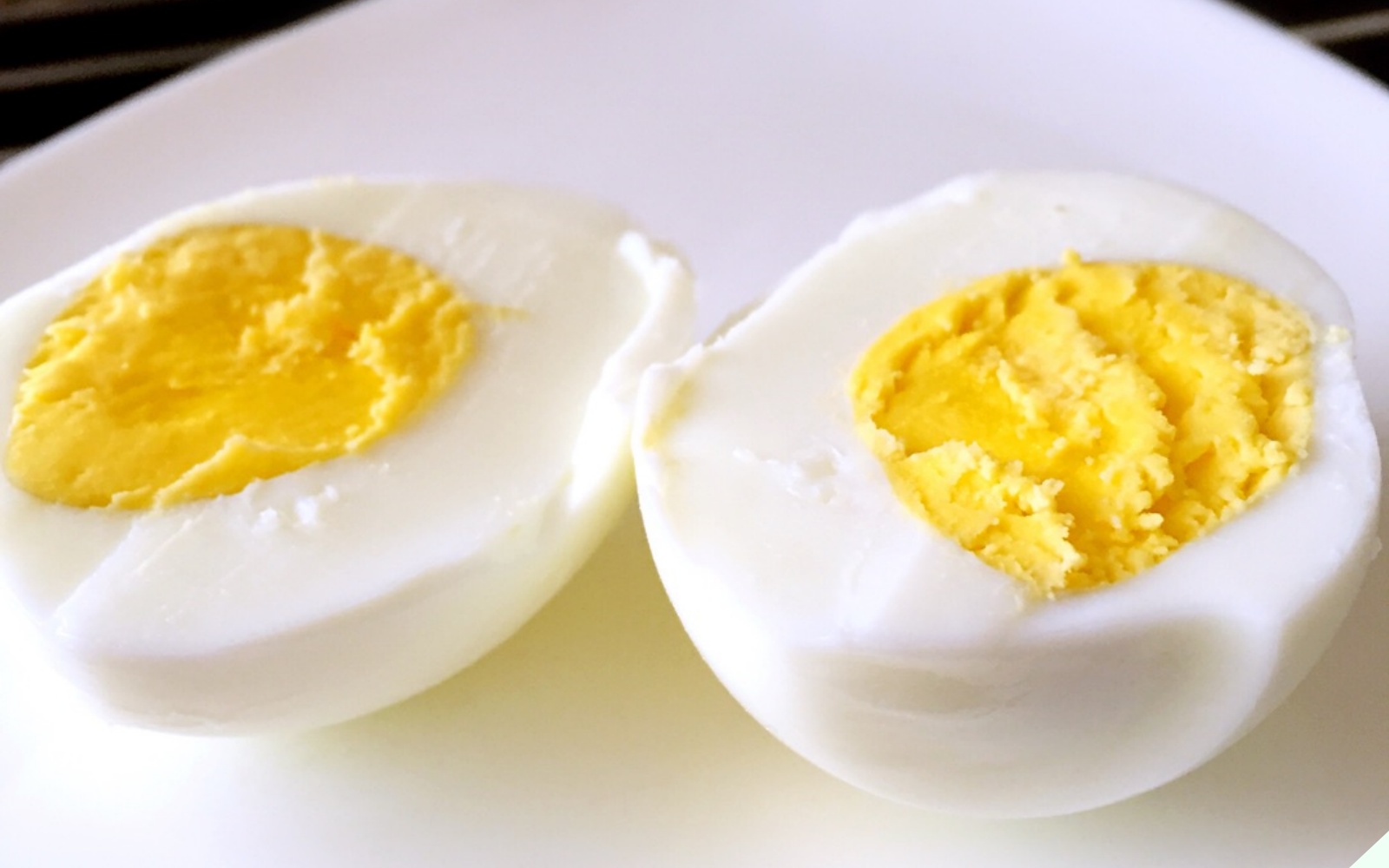
– Remove the eggs from the pot and place them in a bowl of cold water to cool before peeling and enjoying.
Eggs boiled this way are delicious, with soft whites and moist yolks, making them easy to digest.
Note: After the water boils, reduce the heat and simmer for about 10 minutes; otherwise, the eggs won’t cook through.
Tips for Boiling Perfect Eggs That Are Easy to Peel
Add Vinegar
To prevent the eggs from sticking to their shells, add vinegar to the water.
First, arrange the eggs in a pot and add water to cover about ⅔ of the eggs. Then, add two tablespoons of vinegar and boil.
The primary component of egg shells is calcium carbonate, which reacts with the vinegar. The vinegar softens the egg shells, making them easier to peel off in large flakes.
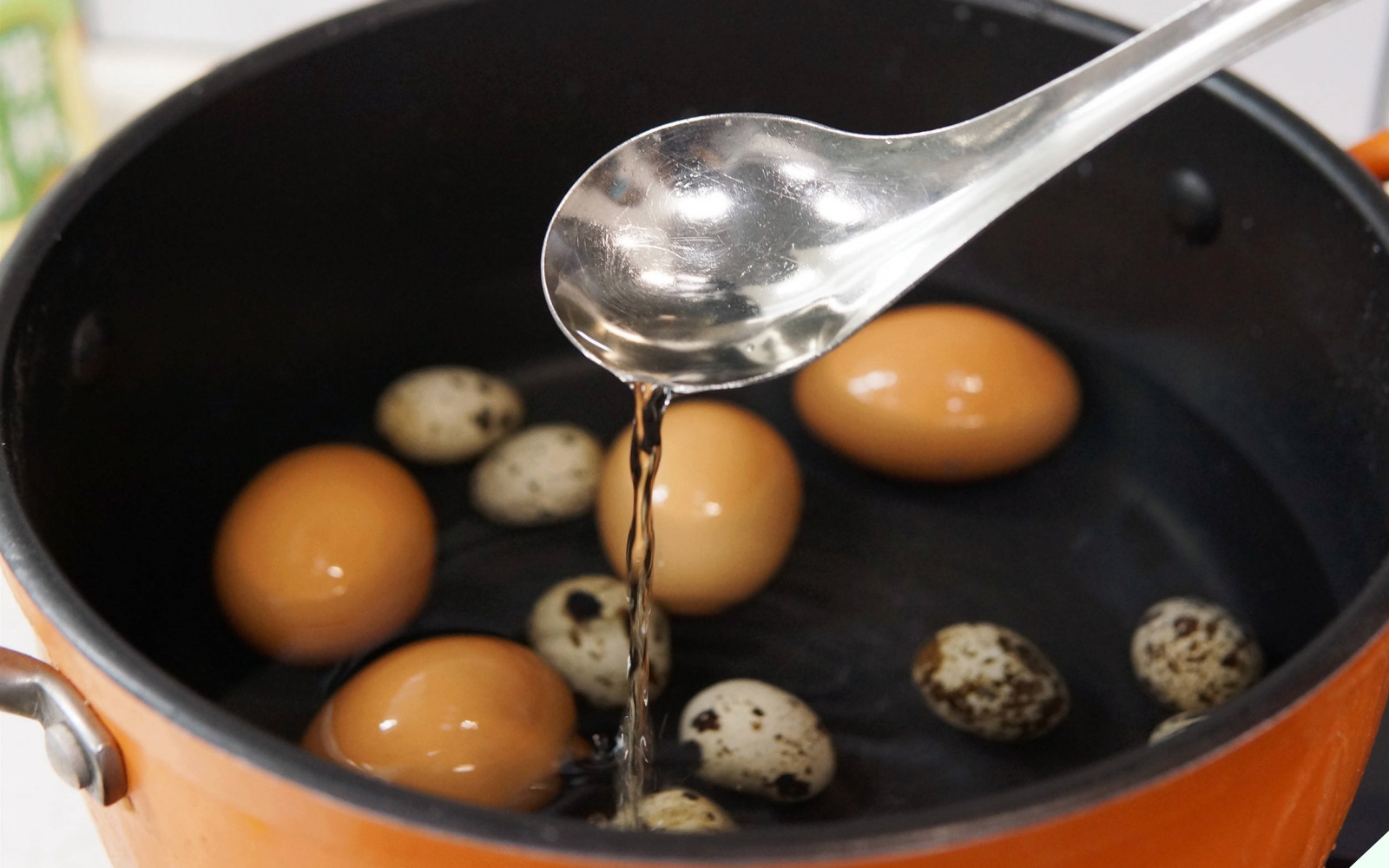
Use Cold Water
If you don’t add salt or vinegar while boiling, you can use cold water to make the eggs easier to peel.
The principle is simple: when you remove the eggs from the boiling water, immediately place them in a bowl of cold water. The hot eggs will contract, creating a gap between the shell and the whites, making the shell easier to remove without sticking.
However, it’s best to use filtered water instead of tap water for soaking, as tap water may contain bacteria that can penetrate the shell and affect the egg’s quality.
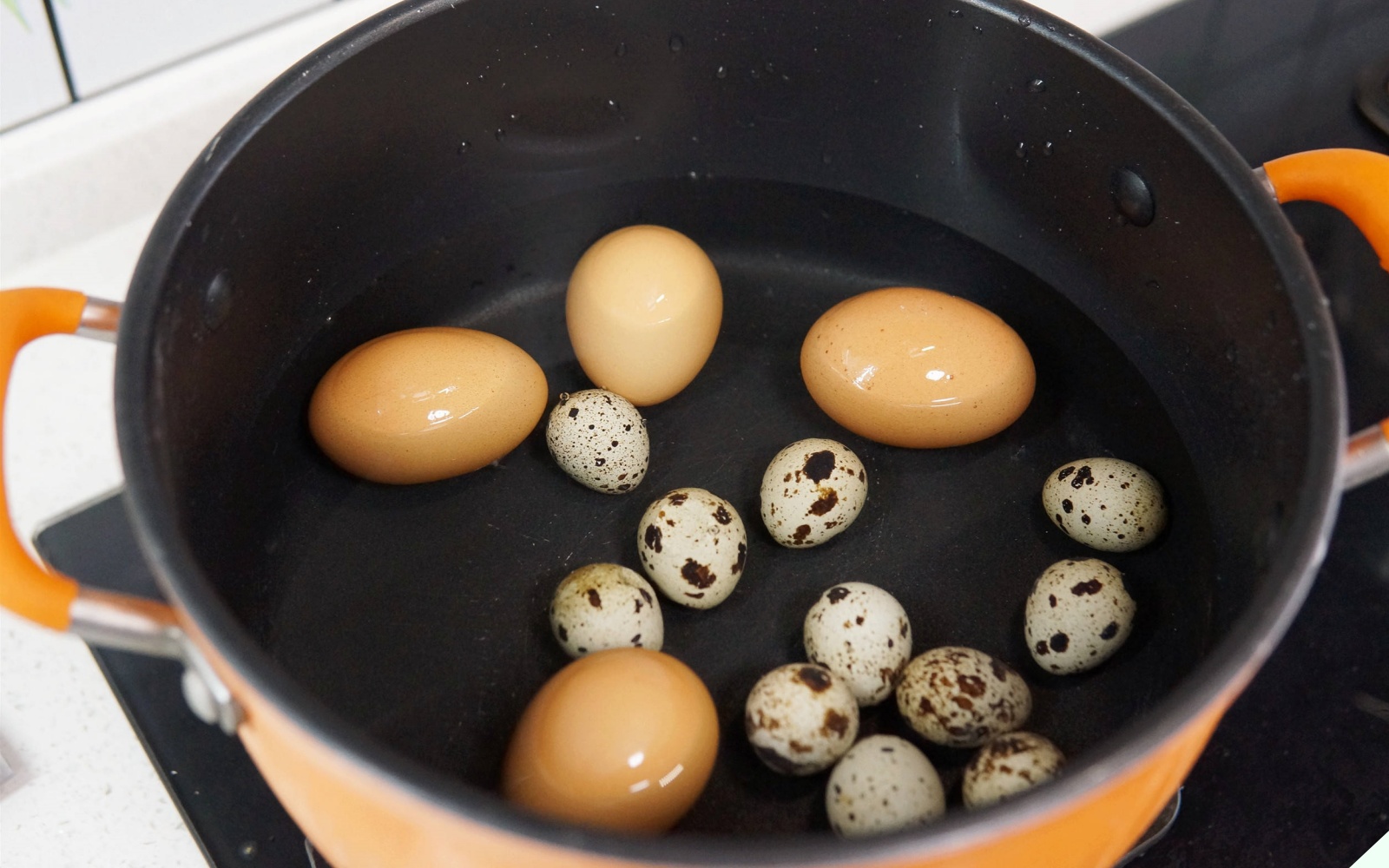
Boil in Cold Water
Instead of using boiling water, start with cold water to avoid egg explosions or cracks due to temperature differences.
Don’t Add Too Much Water
Some people wonder why their eggs crack even when following the instructions. According to chefs, the main reason is adding too much water.
When the pot of eggs boils, they collide with each other and the bottom of the pot, causing cracks. The best solution is to add water just enough to cover ⅔ of the eggs and cook over low heat.






























